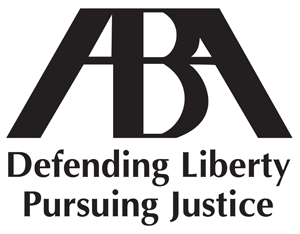Americans Designate Georgian Court Reforms as Negative or Neutral

The American Bar Association published a report about the Court Reforms in 2005 in Georgia. Their conclusions show the changes are not satisfactory. Only one out of 30 elements was estimated as being a positive measure - the rest were designated as negative or neutral measures.
The introduction states that the ideas in the report belong to the authors and should not be considered as the official statements of the US International Development Agency; however, it is obvious that the reforms in Georgia are regarded as negative.
The results are as follows: The only positive reform made is the new salaries that judges receive. The negative points cover areas such as: continuous legal education, the court’s jurisdiction and civil rights, the funding of the budget, the court buildings and court order, court security, a period of guaranteed power, dismissal of judges and their disciplinary procedures, associations of judges, court decisions and pressure upon the court, positions of judges, the registry of the cases, computers and office equipment, an index of legislation and the presence of the media and society at trial proceedings.
Neutral points included: The qualification of judges, the process of selection and appointment of judges to positions, gender and minority balance, the courts power to make amendments to the law, the Appeal Court, objective criteria for promoting judges, distribution of work, judicial immunity, the rule of complaint against the behavior of judges, the publication of court decisions and the court archives.
The report highlights problems which hinder court reform in Georgia. One of the most important issues is the intimidation put upon the courts by the executive and the prosecutor’s office. A method of disciplinary persecution used against court independence is another issue outlined in the report. The report states that there has been an increase in cases where instead of appealing against the courts decision, attempts are made to persecute judges with disciplinary measures. Another impediment to the independence of the courts is the appointment of judges to their positions. The report states: ‘Apart from the judges of the Supreme Court, Common Court judges are appointed to or dismissed from their positions either by the President of Georgia or the High Court of Justice. Although, the judges must be certified and qualified, the reasons why judges are appointed to their positions are often vague and are not transparent”.
The American Bar Association on the Court Reform lists several important issues that must be paid the greatest attention. These are as follows:
1. There should be an increase in the number of judges and a solution to the problems relating to the vacancies for judges should also be found.
2. The judicial training should be advanced and there should be better opportunities for further education for the judges.
3. Professional ethical issues should be stressed during the training
4. More effectively implementing court decisions, particularly of those that concern the state.
The report gives reasons why 29 out of the 30 elements are designated as negative or neutral. Regarding the choosing and appointment of judges to their positions, the report states: “The procedure for appointing judges is not transparent. There are no criteria for the selection of judges”. In the same chapter one can read the following: “Qualifying from the examination is valid for 7 years. However, this validity should be doubted because some judges took the examination during the Shevardnadze era. This is especially true, if according to the rumors, 2000 laris used to be paid to pass the exam successfully”.
The court’s jurisdiction and civil rights are both negatively estimated. The report explains that despite the fact that the Constitution gives impressive human rights protection, this protection does not exist in reality. “Georgia ratified the European Convention on Human Rights but the courts seldom take that into account that whilst making a decision”.
The same chapter concentrates on problems concerning the number of accused people who remain in Preliminary Detention Centers without sufficient proof against them.
The report also considers decisions taken by the court against the state: ‘It is very difficult to carry out any decisions against the state. Thus, a defender feels discouraged from applying to the courts. One who was interviewed said that the courts suspend cases on human rights violations’.
The 20th article, also negative, relates to intimidation affecting a court’s decision. The reason for this negative estimation was given as the following: ‘One of the most important problems within the Court Reforms is the intimidation that can be placed upon independent courts; freedom from which is guaranteed by the Constitution of Georgia. However, the courts experience intimidation from the executive and the prosecutor’s office. The Constitution states that a judge is independent in their activities and is only subordinate to the Constitution and the law. Any attempt at intimidation or involvement in the decision making process is strongly forbidden and punishable by law (Article 84.1 of the Constitution).
The revised salaries for the judges are the only factor assessed as positive and are as follows:
The Chairperson of the Constitutional Court – 4100 laris, the Deputy – 3300 laris, Judges – 3000 laris;
Head of the Supreme Court – 4100 laris, the Deputy – 3600 laris, Judges – 3000 laris;
Head of the Appeal Court – 3000 laris, Judges – 1650 laris;
Head of Regional Court – 1650 laris, Judges – 1450 laris.
Eka Gulua



